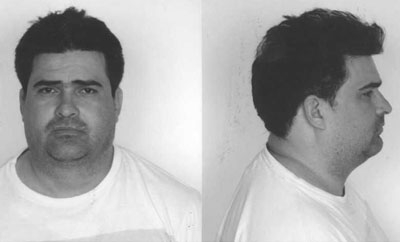Colombian police have captured a drug trafficker in Bogota with close ties to the Italian mafia, shining a light on one of Europe’s principal trafficking routes.
Juan Carlos Davila Bonilla, alias “El Gordo,” allegedly oversaw shipments of cocaine from Colombia to Italy, working with criminal groups on both continents, El Espectador reported.
Colombian authorities say El Gordo worked closely with Iacomino Tommaso, an Italian who was arrested in Bogota in February. Tommaso is believed to have connections with mafias in Sicily and Palermo that sell cocaine on the local market and export it around Europe.
According to the authorities, El Gordo also worked with a local faction of neo-paramilitary drug gang the Urabeños, which provided security for his operations.
El Gordo masked his operations behind a legal front company, which sold jewels in Colombia and internationally.
Both El Gordo and his wife, who is a partner in the jewel company, are wanted by Italian police on drug trafficking charges.
InSight Crime Analysis
Italy is both one of Europe’s largest cocaine consumer markets and a direct entry point for drug loads arriving by sea, according to the latest report by European police force Europol. The operation run by El Gordo and his alleged partner Tommaso is illustrative of how drugs are shipped along this route.
Based on the information released so far, it appears El Gordo handled the logistics of the operation in Colombia, working independently but purchasing the services and protection of a larger criminal organization –- in this case the Urabeños.
However, to ship drugs to Europe, the operation was reliant on a contact from the other side of the ocean, and sale and redistribution around the continent remained in the hands of local criminal organizations.
According to the Europol report, this type of network, which is reliant on criminal groups in Europe and sees limited involvement from the big cartels in the Americas, is common in Europe’s international drug trade.
However, some large drug trafficking organizations are known to have established a more physical presence in Europe, including the Urabeños’ primary rivals, the Rastrojos, who run a base of operations in Spain — an even more popular entry point for cocaine exports. In recent years, there has also been evidence of the increasing influence of Mexican cartels in the region, especially the Sinaloa Cartel.

